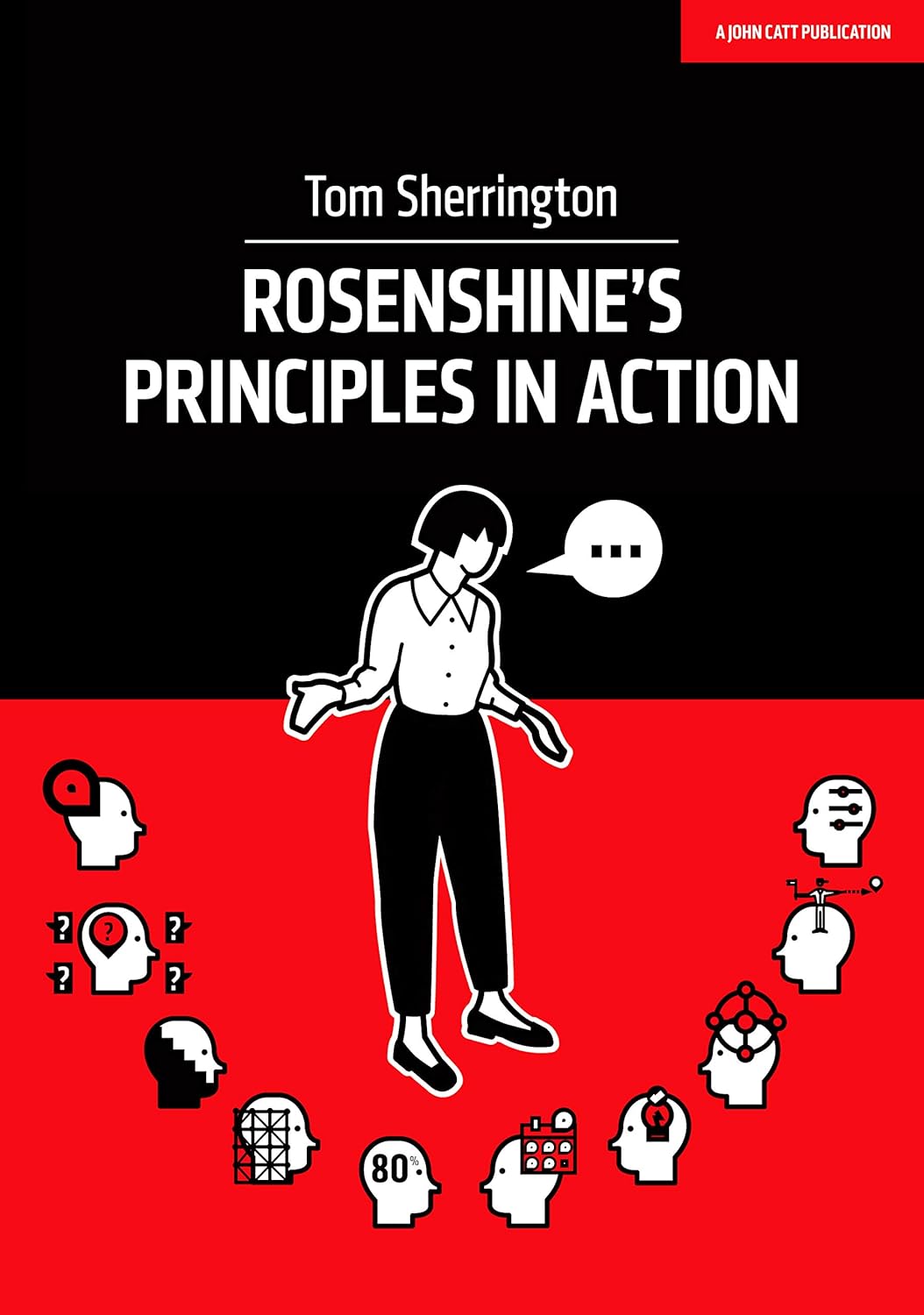About this deal
Providing students with models and worked examples can help them learn to solve problems faster’ (p. 15). There is a danger that by suggesting this is a ‘basic flow of many learning experiences’, the author (as an experienced teacher) is suggesting it is preferable, and it is very much taken out of subject context. Rosenshine’s principles are the culmination of his research into the effectiveness of methods of instruction. Rosenshine worked on this article for many years. He explains several of the ideas behind the principles in a talk given in 2002 on ‘Making Instruction Explicit’ (available on YouTube). In that talk, he says he’s been ‘revising this paper for ten years’.
The POI pamphlet mediates between research and practice (see the pamphlet here). The author clearly states each principle (giving us the what), then summarises findings from research and observations (providing the why), and offers suggested reading related to each principle.
Anyway, Sherrington’s practical suggestions are insightful and his style highly personable. His coverage of each principle reads a bit as a blog post. It wouldn’t surprise me if they originally were – not a criticism in any way as the author’s voice really comes through.
In the second stage, Rosenshine offers advice on how the principle can be employed in the classroom. Rosenshine’s guidance is supported by observations of the teaching practices of master teachers. He often provides several suggestions for classroom activities related to the principle under discussion. of Instruction, a framework that has become almost ubiquitous now, partly thanks to the work of Tom Sherrington and Oliver […] The process of teachers narrating their thought processes involves, as Sherrington puts it, making ‘the implicit explicit’. By this, Sherrington means that those who have achieved mastery over a particular task or skill do not need to make their methods or ways of thinking explicit for them to complete the task or engage in the skill proficiently. Making these explicit can help others learn how to better complete the task or engage in the skill in question. So, it’s better not to set up a choice between them. Taken together, the ‘Rosenshine ten’ plus the ‘Wiliam five’ make a great framework. Rosenshine uses the term ‘schema’ to denote a well-connected network of ideas (Rosenshine, p. 19). Schemata play an important role in his principles, relating to the cognitive science of learning, particularly theories about the ways information gets stored in long-term memory.This being the case, there is also a research consensus that language acquisition is mainly driven by attempting to do communicative things with language, such as learning another subject matter in CLIL or involvement in communicative tasks in more general ELT contexts (rather than learning ‘facts and information’). It’s in that sense that I wonder about the applicability of Rosenshine’s principles to language learning in a communicative classroom. I would agree that there is a need for some deliberate learning, but we probably shouldn’t overstate the case. Automaticity requires ‘overlearning’: learning beyond the point of ‘initial mastery’, such that recall is automatic and skills are fluent (p. 13). ‘When material is overlearned’, Rosenshine writes, ‘it can be recalled automatically and doesn’t take up any space in working memory’ (p. 18). The cognitive load involved in a task is the cognitive effort (or amount of information processing) required by a person to perform this task. If the cognitive load needed for learning becomes excessive, little or no learning can occur’. [1] However, the tasks and techniques you use for any review process might be the same – there’s a whole repertoire of retrieval practice techniques teachers might use including these: 10 Techniques for Retrieval Practice Thanks for framing your response – even though I’ve followed your blog for a while and have a fair idea of your views on certain topics it’s still useful to work out where you’re coming from!
Related:
 Great Deal
Great Deal 